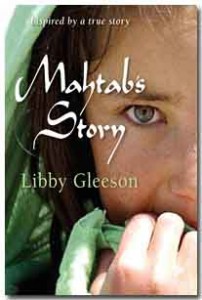 The plight of refugees is often in the headlines – and often for the wrong reasons. Thus, it was interesting to read this tale from Libby Gleeson, which reflects many of the feelings of families of war-torn countries who flee for a better life.
The plight of refugees is often in the headlines – and often for the wrong reasons. Thus, it was interesting to read this tale from Libby Gleeson, which reflects many of the feelings of families of war-torn countries who flee for a better life.
You can imagine that the decision to leave your homeland is not one taken lightly, and it can be fraught with great dangers, disappointments and frustrations. But faced with the alternatives of the ongoing conflict and daily struggles for survival, many families take on these challenges, risking life and limb (and complete family savings) to find a better place to live.
Libby Gleeson was privileged to meet some young girls who had already faced many devastating situations in their homeland, and who are survivors of their refugee struggle – this could be part of their tale…
“Two weeks crouched and hiding, body rigid, waiting every minute for the loud bangs that might come on the cabin wall. Two weeks of fear, of the ice stone in the belly, of holding your breath, of whispering, of blocking from your mind everything you know or have heard of what they can do. They. Taliban. The whip-carrying men in black turbans. The ones who had been cruel to her father, to Grandpa…” (pp. 21-22)
Mahtab and her family begin their journey away from the troubles of Afghanistan in the back of a truck, beneath heavy furniture and sacks of grain, as the truck lurches towards the mountains and Pakistan – their first safe haven. Once there, their struggles have only just begun as her father is told: “you must go first… it is better that way.”
Will he go? After all, Mahtab thinks, their survival so far had relied on the fact that they were together. And if her father goes ahead, how long might they wait for him? Will they be safe – a woman with no man to protect her in an unfamiliar city? Will they ever see him again? And where will they ultimately find a home?
Mahtab’s story is based on the true story of a couple of refugee girls Libby met at a Western Sydney high school. She has captured some of the horrors they faced, the multitude of feelings common as they flee, and, using Mahtab’s thoughts, she reveals how it might well be for many, many young children who have simply been born in the wrong (war-torn) location. Lots of food for thought.
See Libby discussing the beginnings of her book here:
